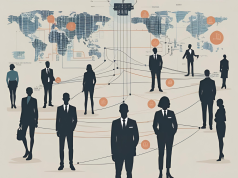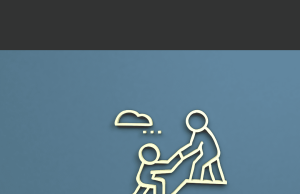As the dust settles on the global upheaval brought by the COVID-19 pandemic, a transformative shift sweeps across the employment landscape. Dubbed ‘The Great Reshuffle’, this period has seen employees across the spectrum rethinking their professional journey, recalibrating their priorities, and redefining the very essence of work-life balance.
In this seismic shift, both individuals and organizations are adapting to emergent work cultures that challenge the status quo. We see a metamorphosis in hiring practices, a tidal wave of remote work opportunities, and a burgeoning emphasis on employee well-being that is reshaping the traditional work environment.
One of the most profound changes is the alteration of hiring practices. Companies are now looking beyond geographical limitations to tap into a global talent pool. Diversity in the workplace is no longer a buzzword but a business imperative. Inclusivity and flexible work arrangements are attractants for the best candidates.
The surge in remote work opportunities has been both a response and a catalyst to changing workforce demands. Employees have tasted the autonomy and flexibility that remote work offers, and many are unwilling to go back to the prescriptive 9-to-5 regime. This is not only changing where we work but how we work, forcing companies to invest in digital infrastructure and revise their policies around productivity.
Another facet of this reshuffle is the increased focus on work-life balance. The pandemic highlighted the fragility of life and the importance of mental health, propelling wellbeing to the forefront of employment benefits. Progressive companies are now instituting policies that promote physical health, mental wellness, and a harmonious work-life integration.
These shifts, while positive, are not without their challenges. Questions arise on sustaining productivity, promoting company culture, and ensuring employee engagement in a dispersed work environment. Organizations need to rethink performance metrics and find novel ways to foster team spirit.
Looking into the future, the potential long-term effects on productivity and employee satisfaction could be significant. Companies that embrace flexibility, prioritize wellbeing, and adapt to the evolving needs of their workforce are likely to see heightened productivity levels and reduced turnover rates.
For workers, this is a time of opportunity and self-reflection. It is a chance to reassess career paths, negotiate for better working conditions, and seek jobs that align with personal values and lifestyle choices.
For employers, it is a wake-up call to modernize, humanize, and empathize. The Great Reshuffle is not a crisis but a clarion call for change.
To thrive in this new employment landscape, both workers and employers must understand that the traditional playbook has been rewritten. It’s time to innovate, to build resilience, and to embrace the transformation with openness and agility. The successful adaptation to this new world of work will define the trailblazers of the post-pandemic era.
In these tumultuous times, The Work Times stands as a beacon, illuminating the path forward for both employees seeking direction and companies aiming to navigate the new norms of employment. The Great Reshuffle is upon us, and together, we can turn it into an era of unprecedented growth and satisfaction in the world of work.




























